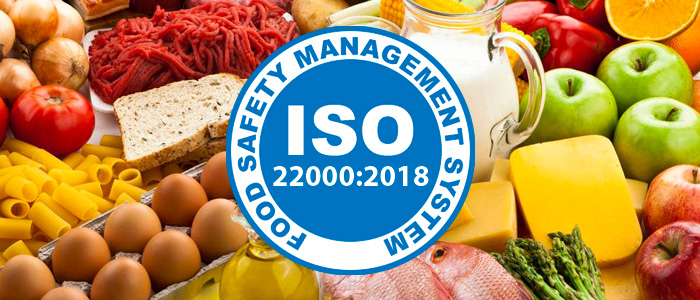From Farm to Fork: How ISO 22000 Keeps Your Food Business Safe and Trusted
How ISO 22000 Keeps Your Food Business Safe and Trusted

Table of Contents
- Introduction
- What Is ISO 22000 Certification?
- Understanding the Standard
- Who Needs It and Why It Matters
- The Global Importance of Food Safety
- Foodborne Illnesses and Consumer Trust
- Regulatory Pressures and Market Demands
- Inside the ISO 22000 Framework
- Core Elements and Structure
- Key Principles of Food Safety Management
- The Certification Process
- Preparation and Initial Assessment
- Documentation and System Implementation
- Internal Audits and Final Certification
- How ISO 22000 Works with Other ISO Standards
- Real-World Benefits of ISO 22000 Certification
- Enhanced Customer Confidence
- Operational Efficiency and Risk Reduction
- Legal Compliance and Market Access
- Choosing a Certification Partner
- ISO Certification Services in the UK
- Tailored Solutions for Small Businesses
- Final Thoughts
- FAQs
Introduction
Food safety isn’t just about what’s on the plate. It’s about trust, reputation, and accountability at every stage of the supply chain. From the soil a vegetable grows in to the shelves of a grocery store, safety matters. That’s where ISO 22000 certification comes into the picture.
This international standard is the go-to framework for ensuring food safety from production to consumption. Whether you’re a local food producer or a global distributor, ISO 22000 helps you earn and maintain trust.
Let’s walk through why this certification matters and how it works, step by step.
What Is ISO 22000 Certification?
Understanding the Standard
ISO 22000 is a global food safety management system (FSMS) standard developed by the International Organization for Standardization. It combines the key elements of:
- Hazard Analysis and Critical Control Points (HACCP)
- ISO management system principles
- Industry-specific requirements
It’s all about managing food safety risks proactively and efficiently.
Who Needs It and Why It Matters
ISO 22000 isn’t just for food manufacturers. It’s designed for everyone in the food supply chain, including:
- Farms and primary producers
- Food processors and packagers
- Logistics and transportation services
- Retailers and caterers
If your business handles food or beverages in any way, this certification is your stamp of safety and reliability.
The Global Importance of Food Safety
Foodborne Illnesses and Consumer Trust
Every year, millions of people suffer from foodborne illnesses—and most of these incidents are preventable. Outbreaks don’t just cause health crises. They also ruin brand reputations overnight.
ISO 22000 helps businesses stay ahead by:
- Identifying food safety risks early
- Preventing contamination
- Establishing emergency preparedness
Regulatory Pressures and Market Demands
Governments across the globe are tightening food safety regulations. Having ISO 22000 certification makes it easier to:
- Comply with national and international laws
- Export to regulated markets
- Qualify for supplier lists in big retailers
Inside the ISO 22000 Framework
Core Elements and Structure
ISO 22000 is structured to align with other ISO standards. It follows the High-Level Structure (HLS), which means it can be easily integrated with standards like ISO 9001 certification or ISO 14001 certification.
The key components include:
- Food safety policy and objectives
- Interactive communication across the supply chain
- System management and documentation
- HACCP principles and prerequisite programs (PRPs)
Key Principles of Food Safety Management
The FSMS built under ISO 22000 is based on these foundational principles:
- Preventive approach to food hazards
- Communication across internal and external food chain stakeholders
- Continuous improvement through monitoring and evaluation
The Certification Process
Preparation and Initial Assessment
You start by analyzing your current food safety practices. This gap assessment identifies what’s working and what needs improvement.
Documentation and System Implementation
Next comes the hard work:
- Writing policies and procedures
- Training staff
- Creating monitoring systems for critical control points
Internal Audits and Final Certification
Before the external auditor shows up, run an internal audit. This acts like a dress rehearsal. When everything is in place, a certified body conducts the final assessment. Pass it, and you’re officially ISO 22000 certified.
Tip: Use expert ISO certification services in the UK to make this process smoother.
How ISO 22000 Works with Other ISO Standards
| ISO Standard | Focus Area |
|---|---|
| ISO 9001 Certification UK | Quality management and customer satisfaction |
| ISO 14001 Certification UK | Sustainable energy practices and environmental control |
| ISO 27001 Certification UK | Data security compliance and risk management |
| ISO 45001 | Occupational risk management and workplace safety standards |
| ISO 22000 | Food industry ISO certification and hygiene management |
| ISO 13485 | Device safety and performance (especially medical devices) |
| ISO 22301 | Disaster recovery planning and business continuity |
| EMS Certification | Environmental responsibility and energy efficiency |
Second table heading bolded above ✔
Combining ISO 22000 with other systems helps build an efficient, well-rounded management framework that covers safety, quality, security, and sustainability.
Real-World Benefits of ISO 22000 Certification
Enhanced Customer Confidence
Consumers are more cautious than ever about what they eat. ISO 22000 shows them you care about quality, hygiene, and safety.
This leads to:
- Stronger brand loyalty
- Better customer reviews
- Competitive advantage
Operational Efficiency and Risk Reduction
ISO 22000 isn’t just about safety. It streamlines your operations:
- Reduces waste and spoilage
- Improves traceability
- Minimizes recalls and disruptions
Legal Compliance and Market Access
Stay compliant with:
- UK and EU food safety laws
- International trade regulations
- Supplier and buyer requirements
Choosing a Certification Partner
ISO Certification Services in the UK
When choosing a provider, look for:
- UKAS-accredited bodies
- Experience in the food industry
- Comprehensive packages (gap analysis, training, audit support)
Popular choices include ISO certification service London and other regional experts.
Tailored Solutions for Small Businesses
Good news: You don’t need to be a multinational to get certified. There are plenty of ISO certification services for small businesses UK that offer:
- Flexible pricing
- Remote consulting
- Fast-track certification programs
Final Thoughts
Food safety isn’t a one-time task. It’s a continuous promise. ISO 22000 certification helps you turn that promise into a practical, trackable system.
Whether you’re a small local bakery or an international food brand, this standard gives you the tools to grow with confidence, credibility, and care.
From farm to fork, safety is the secret ingredient that sets your business apart.
FAQs
1. How long does ISO 22000 certification take?
Most businesses complete the process in 3 to 6 months depending on complexity and size.
2. Is ISO 22000 suitable for small food businesses?
Absolutely. There are budget-friendly solutions tailored specifically for smaller operations.
3. What’s the difference between ISO 22000 and HACCP?
HACCP is part of ISO 22000. The latter is a broader, full-scale management system that includes HACCP principles.
4. Do I need other ISO certifications with ISO 22000?
Not required, but combining it with standards like ISO 9001 or ISO 14001 enhances overall management efficiency.
5. Who provides ISO 22000 certification in the UK?
UKAS-accredited bodies and reputable consultants across the UK offer end-to-end ISO 22000 certification services.
Sponsored article: Why WinWin Officials Is the UK’s Go-To Online Casino in 2025




